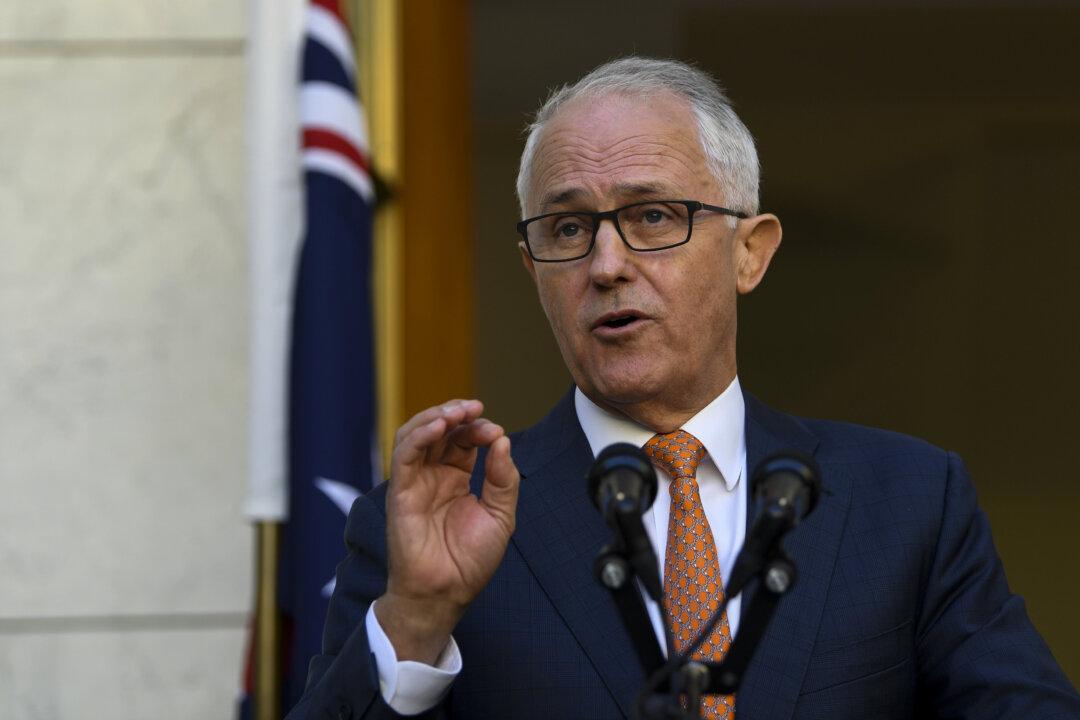Prime Minister Malcolm Turnbull has garnered support for his energy policy following a Coalition partyroom meeting held on Aug. 14.
Turnbull addressed the press to say that after a “good debate,” the proposed policy and legislation changes packaged in the National Energy Guarantee (NEG), including a move to legislate the Paris CO2 emissions target of 26 percent, had received “overwhelming support” from both Liberal and National MPs.
The Paris target would mean a “50-52 percent reduction in emissions per capita and a 64-65 percent reduction in the emissions intensity of the economy between 2005 and 2030,” according to the Department of Energy and Environment website.Minister for the Environment and Energy Josh Frydenberg added that the NEG is expected to reduce “the household average family’s power bill by $550 a year and even more so for business.”
Turnbull said that the NEG would provide cheaper and more reliable energy “and at the same time, of course, meet our commitments to reduce emissions in accordance with the Paris Agreement.”
The Difficult Road Ahead
Despite support from a majority of the Coalition, a total of 10 MPs have chosen to reserve their right to cross the floor when Turnbull’s energy policy eventually goes to Parliament, according to The Australian. These MPs include Barry O'Sullivan, Andrew Hastie, Tony Pasin, Eric Abetz, Kevin Andrews, Craig Kelly, George Christensen, Tony Abbott, Andrew Gee, and Barnaby Joyce.
According to Newscorp, if these MPs choose to cross the floor and vote against the NEG, it will be very difficult for the government to pass its energy policy; especially if opposition leader Bill Shorten decides not to support the policy as well.
“The Labor party has to decide whether they want to support cheaper and more reliability electricity,” Turnbull told reporters.




